Technology is an ever-evolving force, shaping all aspects of our lives. From the way we connect to the information we consume, its influence is undeniable. However, alongside its undeniable benefits, technology also presents a growing number of social and ethical considerations that demand our attention.
This blog delves into some of the most pressing social and ethical concerns surrounding technology today. We’ll explore how these issues are intertwined and what steps can be taken to navigate this complex landscape responsibly.

The Algorithmic Labyrinth: Bias and Fairness in AI
Artificial Intelligence (AI) is rapidly transforming industries and reshaping decision-making processes. However, concerns around bias embedded within AI algorithms have become a major ethical issue. Datasets used to train AI models can reflect societal biases, leading to discriminatory outcomes. For example, AI-powered facial recognition software has shown higher error rates when identifying people of color. This raises critical questions about fairness and equal treatment in AI-driven decision-making.
Mitigating Bias:
- Diverse Training Data: Building AI models with diverse and representative datasets is crucial to reduce bias.
- Human oversight: Integrating human review into AI decision-making processes helps ensure fairness and address potential biases.
- Algorithmic Transparency: Understanding how AI algorithms reach their conclusions allows for improved transparency and accountability.
The Double-Edged Sword of Social Media: Mental Health and Privacy
Social media platforms have become an integral part of our lives. While they offer opportunities for connection and information sharing, their impact on mental health is a growing concern. Studies have linked excessive social media use to anxiety, depression, and feelings of inadequacy. The curated and often idealized online world can create a distorted sense of reality, impacting self-esteem and well-being. Additionally, privacy concerns continue to plague social media platforms. The vast amount of data collected about users raises questions about ownership, control, and potential misuse of this information.
Promoting Responsible Use:
- Mindful consumption: Encouraging users to be mindful of their social media consumption and take breaks when needed.
- Platform accountability: Social media platforms must prioritize user well-being and offer tools to manage content consumption.
- Data privacy regulations: Stronger data privacy regulations are needed to ensure user control over personal information.
The Digital Divide: Access and Inclusion in the Tech Era
The benefits of technology are not equally distributed. The digital divide refers to the gap between those who have access to technology and those who do not. This lack of access can exacerbate existing social and economic inequalities. Limited access to technology hinders educational opportunities, job prospects, and overall social participation.
Bridging the Gap:
- Government initiatives: Public policy initiatives are crucial to invest in infrastructure and programs that provide equitable access to technology.
- Accessibility features: Tech companies should prioritize developing technology that is accessible to all, regardless of ability.
- Digital literacy programs: Equipping individuals with the skills to navigate the digital world empowers them to utilize technology effectively.
The Future of Work: Automation and Human Potential
Advancements in automation are transforming the way we work. While automation offers benefits like increased efficiency and productivity, it also raises concerns about job displacement. As tasks become increasingly automated, questions arise about the future of work and the skills required to thrive in the evolving job market.
Investing in Human Skills:
- Education systems: Education systems need to adapt to prepare future generations with the skills needed for an automated workforce.
- Lifelong learning: Encouraging a culture of lifelong learning empowers individuals to adapt and acquire new skills throughout their careers.
- Universal Basic Income (UBI): The concept of a UBI provides a social safety net in case of widespread job displacement due to automation.
The Ethics of Biohacking and Human Augmentation
Biohacking refers to the practice of using technology to modify the human body. While some biohacking applications aim to improve health or well-being, the ethical implications of human augmentation require careful consideration. Questions around equity and accessibility, potential risks and unintended consequences, and the blurring line between human and machine remain significant concerns.
Open Dialogue and Regulation:
- Ethical guidelines: Open discussions and the development of ethical guidelines are crucial as biohacking technologies evolve.
- Safety regulations: Appropriate regulations are needed to ensure the safety and well-being of individuals considering biohacking practices.
- Inclusive considerations: Biohacking should be accessible and address concerns of creating a further divide between those who can afford such enhancements and those who cannot.
Conclusion: A Collective Responsibility
Technological advancements are inevitable. However, navigating the increasingly complex social and ethical considerations requires a collective effort. Users, developers, policymakers, and educators all have a role to play in ensuring technology serves humanity for the greater good.
Let’s discuss how Ciarus Technologies can help you navigate these challenges.

